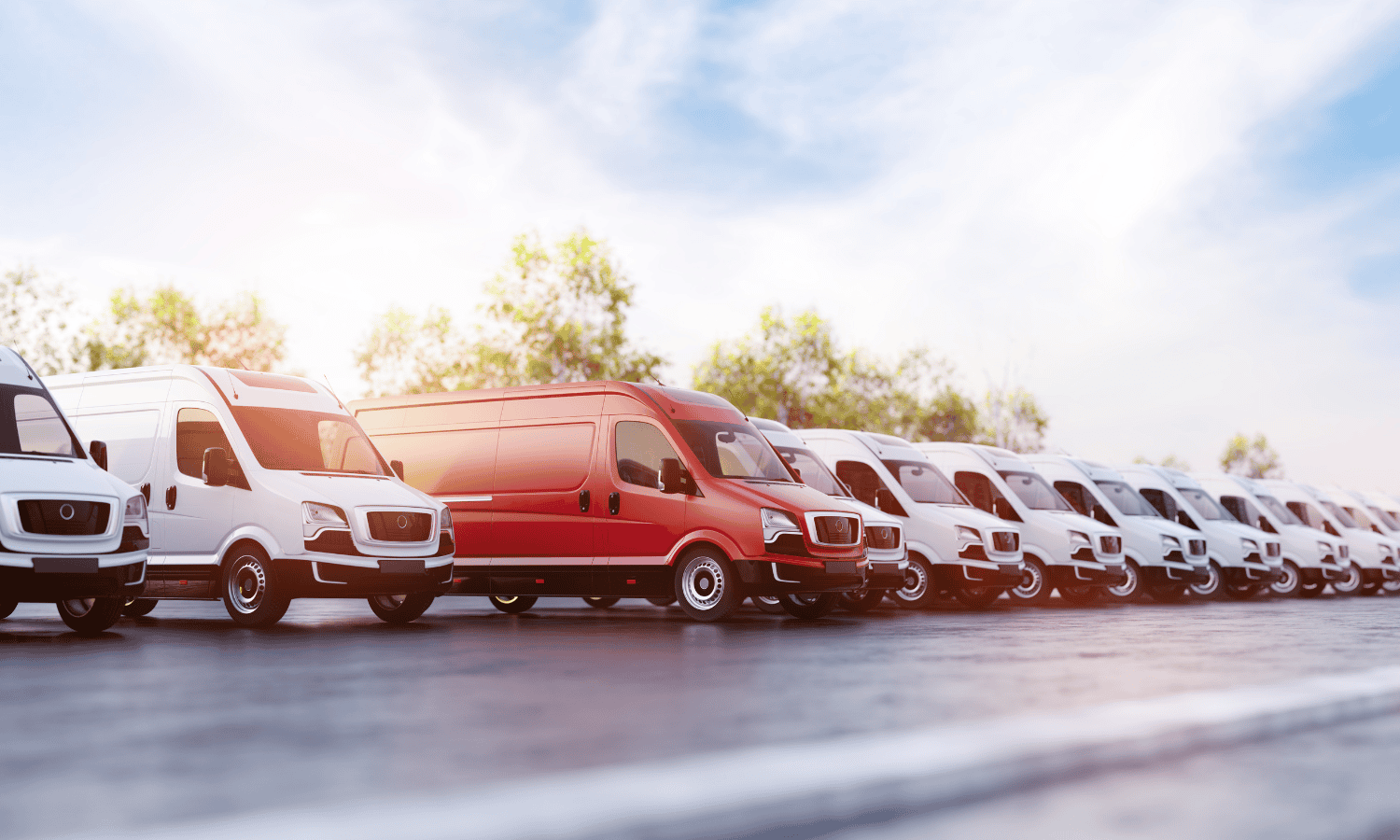Few business decisions impact your tax bill more than motoring decisions — whether you’re self-employed, a partner, company director or other employee.
And with tax rules changing year on year, keeping up to date matters. From the government’s about-turn on double cab pickups, to the latest benefit in kind rates for electric cars, we cover what you need to know.
VAT and cars
For VAT purposes, HMRC defines a car as being any motor vehicle of a kind normally used on public roads which has three or more wheels and either:
- is constructed or adapted mainly for carrying passengers or
- has roofed accommodation to the rear of driver’s seat that’s fitted with side windows or that’s constructed or adapted for the fitting of side windows.
With limited exceptions (such as cars bought for use primarily as taxis, to provide driving instruction or self-drive hire cars), VAT can’t usually be recovered on the purchase of a car. Should you be able to recover the VAT, and later put the car to different use, the VAT position changes, and you may need to account for output tax at the time of the change of use on the current value of the car. There are also VAT implications on the sale of a car on which you have recovered VAT.
You may be able to recover VAT on the purchase in full if the car is to be used exclusively for the purposes of your business; and it’s not available for private use. But you will need to be able to prove it! If your business leases a car, it can usually recover 50% of the VAT.
Businesses can reclaim VAT on business-related running and maintenance costs, such as repairs; and on accessories fitted after purchase, so long as they have a business use.
VAT and other vehicles
Though recovery of VAT is blocked in most cases when you buy a car, the position for other vehicles is different. VAT on lorries, vans and other commercial vehicles can be recovered if supplied to a registered business, and they are used for the purpose of the business.
The following are not considered cars for VAT purposes:
- vehicles capable of accommodating only one person or suitable for carrying 12 or more people including the driver
- caravans, ambulances and prison vans
- vehicles of not less than three tonnes unladen weight
- special purpose vehicles, such as ice cream vans, mobile shops, hearses, bullion vans, and breakdown and recovery vehicles
- vehicles with a payload of one tonne or more.
Cars, vans — and double cab pickups
What counts as a van or car matters because there can be significant tax at stake. The VAT rules have one definition: the rules for capital allowances and car benefit purposes have another, and there have been problems deciding where multi-purpose vehicles, like double cab pickups (DCPUs) fit in.
HMRC, for obvious reasons, has pushed for the car category. It had planned to tax DCPUs as cars for capital allowances and benefit in kind purposes from 1 July 2024: but a swift about-turn followed.
Good news: To clarify a confusing story, we can confirm that the planned change will not take place. HMRC accepts that the one tonne payload definition of van (used for VAT purposes) will apply for DCPUs for capital allowances and benefit in kind purposes. Though DCPUs with payload of less than one tonne will fall into the car category, DCPUs with a one tonne payload will be treated as goods vehicles, not cars.
Vehicles for employees
Directors and other employees, provided with a car by their employer, face a benefit in kind charge, usually referred to as ‘company’ car tax, though the rules apply to unincorporated businesses as well as companies. The charge arises unless private use is excluded, which is technically very difficult to establish. For the employer, there are Class 1A National Insurance contributions at 13.8% (2024/25) on the benefit.
The benefit hinges on the list price of the car, plus particular taxable accessories, multiplied by what is called the ‘appropriate percentage’. This is graduated by CO2 emissions. With the maximum percentage being 37%, the rules are weighted in favour of zero and low emission vehicles. Diesels attract a 4% supplement (subject to the 37% cap), unless RDE2 compliant. All-electric vehicles get particularly favourable treatment. The percentage for zero emission cars is 2% for 2024/25; 3% for 2025/26; 4% for 2026/27 and 5% for 2027/28. For hybrids, the electric range also matters. Cars with emissions between 1-50g/km, and a range of over 130 miles use the same percentage as zero emission cars.
Adjustment to the list price is made where employees contribute towards the cost of the car (up to a maximum of £5,000); for disabled drivers; and for classic cars. There is a reduction in charge where a car is provided for only part of a year.
If fuel is provided for private use of a vehicle, or costs are reimbursed, there is an additional benefit in kind charge. This does not apply to wholly electric cars.
Tax when a business acquires a car
If your business buys a car outright, tax relief on the capital cost usually comes via capital allowances. Changes to capital allowances, such as the retention of the £1 million Annual Investment Allowance (AIA) limit, and the introduction of Full Expensing for companies, have made news headlines. But in fact, neither of these provides tax relief for a business purchasing cars, and the best boost for business car purchase is likely to come via entry to the electric vehicle market while the tax incentives are still strong.
Comment: Generous rules on capital allowances apply for businesses buying new electric cars or cars with zero CO2 emissions. These qualify for 100% first year allowances until 1 April 2025, meaning the entire expenditure can be written off against taxable income in the tax period in which incurred. You may want to consider this option while it is still available.
For cars other than these, tax relief comes via writing down allowances (WDAs). WDAs are claimed by grouping items into pools, each with its own rate of capital allowances. A percentage of the value is then deducted from profits each year, with rates depending on when cars were acquired and CO2 emissions. It is a slow route to full tax relief.
| Type of car purchased | Capital allowances available |
| New and unused, CO2 emissions are 0g/km (or car is electric) | 100% first year allowances |
| Second hand electric car | Main rate allowances (18% WDAs) |
| New or second hand, CO2 emissions are 50g/km or less | Main rate allowances (18% WDAs) |
| New or second hand, CO2 emissions are more than 50g/km | Special rate allowances (6% WDAs) |
Comment: Acquiring a car via a business car lease has different tax consequences from outright purchase. We should be pleased to discuss this further.
Sole traders and partnerships
Capital allowances for cars used partly for business, and partly privately, by sole traders and partnerships, are allocated to a single asset pool and WDAs depend on CO2 emissions.
The overall deduction allowed from trading profits is the business use proportion only. Some unincorporated businesses use the simplified expenses basis, instead. This involves claiming flat rate simplified deductions, rather than actual costs.
Low emission technology
Tax policy currently favours low emission vehicles, as already noted. Other tax incentives include:
- 100% first year allowances for purchase of new zero emission goods vehicles, gas refuelling stations and electric vehicle charge-points until 2025.
- Vehicle Excise Duty (VED): electric vehicles currently do not pay VED, and alternatively fuelled vehicles and hybrids pay a discounted rate until April 2025.
- Until 2025, purchase of some low emission vehicles, such as taxis, trucks and vans, qualifies for the government plug-in grant scheme, which gives a discounted purchase price on certain models.
- Employers may be able to use the government’s Workplace Charging Scheme to help towards buying and installing electric vehicle charge-points at eligible places of work: funding is available until 31 March 2025.
- Employers can provide workplace charging for electric or plug-in hybrid cars and vans used by employees without a charge to tax or NICs.
- HMRC now accepts that there is no taxable benefit where employers reimburse employees for the cost of charging company-owned, wholly electric cars, available for private use.
- The rules on optional remuneration do not apply to cars with CO2 emissions of 75g/km or less, making such cars very attractive for salary sacrifice arrangements.
Comment: Many of these tax incentives are set for change from 2025, and your business may want to factor this into planning.
Tax on acquiring a van
The tax treatment of vans can be more advantageous than the treatment of cars, and for some businesses, van purchase has an appeal for exactly this reason. Buying a van can accelerate tax relief; vans purchased either outright or under an HP agreement are eligible for the AIA, providing 100% relief up front. The AIA is available to both incorporated and unincorporated businesses.
The taxable benefit position for vans is also different: where commuting is considered private use for a car, it is not for a van.
- Where vans are provided for employees with unrestricted private use, there is a flat rate benefit charge each year. This remains at £3,960 for 2024/25, and applies to all vans, regardless of age, and (where a van is capable of emitting CO2) regardless of emissions. The position overall can compare favourably with the benefit in kind charge for use of a company car. There is a nil rate for zero emission vans.
- Where vans are provided for employees mainly for business use, and private use is restricted to commuting, the van benefit charge should not apply. What’s called ‘insignificant’ private use should also escape the charge: HMRC gives the example of taking rubbish to the tip perhaps twice a year. We can provide more information to help you check that use falls within the relevant conditions.
- An additional fuel charge applies where employers provide fuel for unrestricted private use. This is £757 for 2024/25.
Working with you
The run-up to April 2025 provides a window of opportunity to use the existing tax incentives for electric vehicles, and we would be pleased to discuss what this could mean for your business. Clayton & brewill is always here to help with any decisions on business motoring. Please get in touch.





